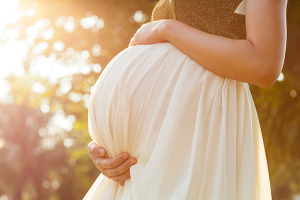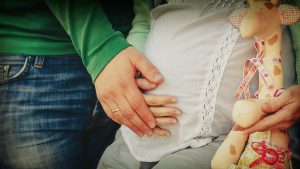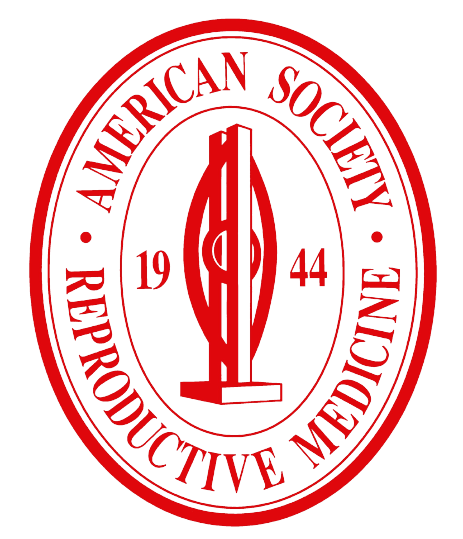What Qualifies and Disqualifies an Egg Donor: A Comprehensive Guide
Egg donation is a remarkable and altruistic act that enables many individuals and couples to achieve their dreams of parenthood. This comprehensive guide will explore what qualifies and disqualifies an egg donor, covering the essential medical, psychological, and lifestyle criteria that are considered during the screening process.
Understanding Egg Donation
Egg donation is a process in which a fertile woman donates her eggs (oocytes) to another woman or couple to help them conceive. The donated eggs are fertilized with sperm in a laboratory, typically through in vitro fertilization (IVF), and the resulting embryos are transferred into the intended mother’s uterus. This process can involve fresh or frozen embryos and may include additional techniques such as preimplantation genetic testing (PGT).
The Importance of Qualifications
The qualifications for becoming an egg donor are crucial for several reasons:
- Health and Safety: Ensuring the donor’s health and safety is paramount, as the process involves medical procedures and medications that can impact the donor’s well-being.
- Success Rates: High-quality eggs increase the chances of successful fertilization, embryo development, and pregnancy for the intended parents.
- Minimizing Risks: Rigorous screening helps minimize the risks of genetic disorders and other complications for the resulting children.
Qualifications for Becoming an Egg Donor
Becoming an egg donor involves meeting specific qualifications that encompass medical, psychological, and lifestyle criteria. Here is an in-depth look at what qualifies an individual to become an egg donor:
Age Requirements
Age is one of the primary factors in determining eligibility for egg donation. Most egg donation programs require donors to be between the ages of 21 and 30. This age range is chosen because:
- Egg Quality: Women in this age group are more likely to produce high-quality eggs, which increases the chances of successful fertilization and pregnancy.
- Ovarian Reserve: Younger women typically have a higher ovarian reserve, meaning they have more eggs available for retrieval.
- Health and Safety: The risks associated with egg retrieval and hormone stimulation are lower in younger women.
Health and Medical History
Potential egg donors must be in excellent health. This includes several key factors:
Physical Health
- Healthy Body Weight: Donors should have a body mass index (BMI) within the normal range (18.5-24.9). Being overweight or underweight can affect egg quality and the donor’s response to fertility medications.
- Non-Smoker: Smoking can negatively impact egg quality and fertility, so non-smokers are required.
- No Drug Use: Donors must not use illegal drugs or substances. They must also not abuse prescription medications.
Medical History
- No History of Genetic Disorders: Donors should not have a personal or family history of genetic disorders, such as cystic fibrosis, sickle cell anemia, or other hereditary conditions. This helps minimize the risk of passing on genetic diseases to the offspring.
- Regular Menstrual Cycles: Donors should have regular menstrual cycles, which indicates normal ovarian function.
- Free from Infectious Diseases: Donors should be free from infectious diseases such as HIV, hepatitis B and C, and sexually transmitted infections (STIs).
Psychological Health
Egg donation can be an emotionally and mentally demanding process. Therefore, psychological health is a critical qualification:
- Mental Stability: Donors should be free from mental health disorders such as depression, anxiety, or bipolar disorder.
- Counseling Sessions: Donors must be willing to undergo psychological counseling to ensure they understand the emotional implications of the donation process and are mentally prepared for it.
- Informed Consent: Donors should fully understand and consent to all aspects of the egg donation process, including the medical procedures, risks, and legal implications.
Lifestyle and Behavior
Certain lifestyle and behavioral factors are also considered:
- No Risky Behaviors: Donors should not engage in risky behaviors that could expose them to infectious diseases, such as unprotected sex with multiple partners or intravenous drug use.
- Commitment to the Process: Donors must be willing to commit the time and effort required for the donation process, which includes multiple medical appointments, hormone injections, and the egg retrieval procedure.
- Stable Lifestyle: A stable and supportive living environment is essential for the donor’s overall well-being during the process.
Educational and Personal Background
While not always a strict requirement, many egg donation programs consider the donor’s educational and personal background. This includes:
- Educational Attainment: Some programs prefer donors with a certain level of education, as it can be an indicator of overall health and responsibility.
- Personal Interests and Hobbies: Information about the donor’s interests and hobbies can help intended parents select a donor who aligns with their values and lifestyle.
Disqualifications for Egg Donors
While many women may meet the basic qualifications for egg donation, there are specific factors that can disqualify an individual from becoming an egg donor. These disqualifications are in place to ensure the safety and well-being of both the donor and the recipients.
Age Disqualifications
Women who are under the age of 21 or over the age of 35 are typically disqualified from donating eggs. This age range is based on:
- Egg Quality and Quantity: Younger and older women may produce eggs of lower quality or quantity, reducing the chances of successful fertilization and pregnancy.
- Health Risks: The medical risks associated with egg retrieval and hormone stimulation are higher outside this age range.
Health and Medical History Disqualifications
Several health and medical history factors can disqualify an individual from becoming an egg donor:
Physical Health Disqualifications
- Obesity or Being Underweight: A BMI outside the normal range can affect egg quality and the donor’s response to fertility medications.
- Smoking: Current smokers or those with a history of smoking are often disqualified due to the negative impact on egg quality.
- Drug Use: Use of illegal drugs or abuse of prescription medications disqualifies a potential donor.
Medical History Disqualifications
- Genetic Disorders: A personal or family history of genetic disorders disqualifies a donor to minimize the risk of passing on genetic diseases.
- Irregular Menstrual Cycles: Irregular cycles can indicate underlying health issues that may affect egg quality and fertility.
- Infectious Diseases: Positive tests for infectious diseases such as HIV, hepatitis B and C, and STIs disqualify a potential donor.
Psychological Health Disqualifications
Certain psychological factors can disqualify an individual from becoming an egg donor:
- Mental Health Disorders: Donors with a history of mental health disorders such as depression, anxiety, or bipolar disorder are often disqualified.
- Refusal of Counseling: If a potential donor is unwilling to undergo psychological counseling, they may be disqualified to ensure they are mentally prepared for the donation process.
- Lack of Informed Consent: If a potential donor does not fully understand and consent to the egg donation process, they are disqualified.
Lifestyle and Behavior Disqualifications
Certain lifestyle and behavioral factors can disqualify a potential egg donor:
- Risky Behaviors: Engaging in risky behaviors such as unprotected sex with multiple partners or intravenous drug use disqualifies a donor.
- Inability to Commit: If a potential donor is unable or unwilling to commit to the time and effort required for the donation process, they are disqualified.
- Unstable Lifestyle: A lack of stability in the donor’s living environment or lifestyle can disqualify them from the process.
Educational and Personal Background Disqualifications
While not always a strict requirement, certain educational and personal background factors can disqualify a potential egg donor:
- Lack of Educational Attainment: Some programs prefer donors with a certain level of education, and a lack of educational attainment can be a disqualifying factor.
- Inconsistent Personal Information: Providing inconsistent or inaccurate information about personal interests and hobbies can disqualify a donor.
The Screening Process for Egg Donors
The screening process for egg donors is comprehensive and involves several stages to ensure the egg donor meets all the necessary qualifications and does not have any disqualifying factors. Here is an overview of the screening process:
1. Application and Initial Screening
The process begins with an application and initial screening:
- Application: Potential egg donors fill out an application detailing their medical history, lifestyle, and personal background.
- Initial Screening: Preliminary screening includes a phone or in-person interview to discuss the donor’s motivations, expectations, and suitability for the program.
2. Medical and Psychological Screening
Once the initial screening is complete, the donor undergoes comprehensive medical and psychological evaluations:
- Physical Examination: A complete physical examination by a fertility specialist to assess overall health and reproductive organs.
- Blood Tests: Extensive blood tests to check for infectious diseases, hormone levels, and genetic conditions.
- Ultrasound: An ultrasound examination to evaluate the donor’s ovarian reserve and reproductive health.
- Drug Tests: Screening for illegal substances and medications that could affect egg quality or donor health.
- Psychological Evaluation: A thorough psychological evaluation to assess the donor’s mental health and readiness for the process.
3. Legal and Ethical Considerations
Legal and ethical considerations are crucial during the screening process:
- Informed Consent: Ensuring the egg donor fully understands and agrees to the medical procedures, risks, and legal implications of egg donation.
- Legal Contracts: Drafting legal agreements outlining the rights and responsibilities of both the egg donors and intended parents.






